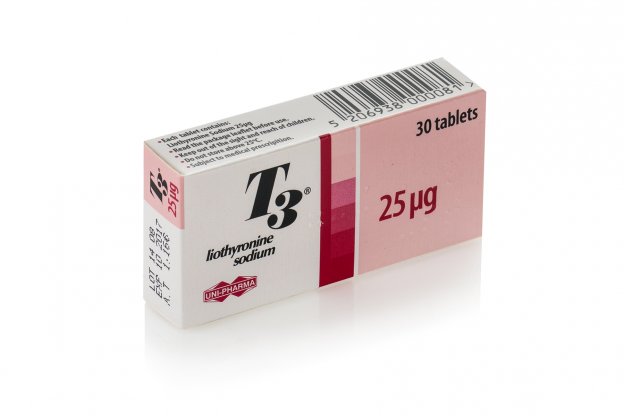The World Anti-Doping Agency (WADA) refused to include thyroid hormones on its list of prohibited substances and methods for the 2016 calendar year. WADA’s expert scientific committee determined that the use of thyroid hormones by athletes was safe and did not provide a performance-enhancing advantage. This means elite athletes can continue to use thyroid drugs without penalty even in the absence of a therapeutic use exemption (TUE).
Thyroid hormones include commercially available drugs such as liothyronine (Cytomel) and levothyroxine (Synthroid) which are synthetic versions of T3 and T4, respectively. These drugs have been well-known as weight loss and fat loss agents by athletes and competitive bodybuilders since the 1960s and 1970s. However, an untold number of athletes have used Cytomel with the intent to enhance athletic performance above and beyond any benefit associated with weight loss.
The United States Anti-Doping Agency (USADA) and the United Kingdom Anti-Doping (UKAD) are well aware of the use of thyroid drugs for performance-enhancing purposes. USADA and UKAD both aggressively lobbied WADA to ban the drugs. WADA’s decision to rebuke their efforts was somewhat surprising.
In order for a drug to make it on WADA’s list of prohibited substances and methods, the drug must meet two of three criteria. It must enhance an athlete’s performance. It must be harmful to an athlete’s health. And it must violate the “spirit of sport”.
WADA has been inconsistent in how it applies the criteria. WADA science director Olivier Rabin insisted that its decisions are entirely informed by the evidence-based literature. And according to the WADA, there is no conclusive proof that thyroid hormones can enhance performance and the (non-medical) use of thyroid drugs is not harmful to health.
In this case, the fact that athletes may use thyroid hormones specifically with the intention of enhancing performance is irrelevant if the evidence does not support it. Rabin made the observation that German athletes are fond of infusing ozone up their ass with the intention of enhancing performance (improving oxygen intake). But Rabin said that doesn’t mean WADA will ban anal infusions of ozone if the science does not prove it enhances performance.
However, WADA added meldonium to the 2016 prohibited substances list with a notation specifically stating that “Meldonium (Mildronate) was added because of evidence of its use by athletes with the intention of enhancing performance.”
So, which is it? Does WADA require proof that a drug enhances performance? Or does WADA merely require proof that a drug is used with the intention of enhancing performance? WADA’s decisions appear to be capricious and arbitrary.
There is no shortage of proof that thryoid drugs are being used with the intention to enhance performance. WADA has known about this for several years as former BALCO mastermind Victor Conte pointed out on Twitter recently.
“IMO. WADA has known that thyroid medication lirothyonine (T3) enhances performance & BALCO athletes used it in 2003,” Conte posted on Twitter on October 1, 2015.
Conte has quite a bit of experience designing drug protocols for elite athletes. While he has long since put those days behind him, in the early 2000s, Conte worked with some of the top Olympic track athletes in the world. These names included sprinters Tim Montgomery, Dwain Chambers, Marion Jones and Kelli White.
Conte provided his athletes with several drugs including erythropoietin (EPO), human growth hormone (hGH), modafinil (Provigil), testosterone cream, and tetrahydrogestrinone (THG). He also coined catchy names as for the PEDs such as “The Cream” for testosterone and “The Clear” for THG.
Conte also had a catchy name for another drug he regularly gave to athletes. It was “The Lightness” for liothyronine (Cytomel).
“I used to give liothyronine to Dwain Chambers. I gave it to Kelli White before every race when she won double gold at the World Championships in Paris in 2003.” Conte told Jimson Lee in an article for SpeedEndurance.com published in 2013.
“It’s like putting a turbo-charger on the steroid. It makes it much more effective. Everything is faster including heart-rate. If you feel sluggish, you suddenly have bounce in your legs; you feel light.”
Conte’s proof of the performance-enhancing effects of thyroid hormone comes from the results of the athletes who took it. It works especially well when combined with microdoses of anabolic steroids like testosterone.
“Kelli White would take 50 micrograms before a race,” Conte said. “My opinion is formed from the athletes telling me they felt very light and fast after taking it. It accelerates your basic metabolic rate, so if you’re taking microdoses of anabolic steroid and take it in conjunction with T3 (liothyronine) it makes them work that much faster.”
WADA, USADA, UKAD and every other elite athlete in the world have been aware of Conte’s use of T3 thyroid hormones since as early as 2008. Conte revealed his “prescription for success” in a letter to Dwain Chambers that was published on various news websites in May 2008.
“Liothryonine was used help accelerate the basic metabolic rate before competitions,” Conte wrote in the letter to Chambers with specific directions for its performance-enhancing use. “The purpose was to reduce sluggishness and increase quickness. Two 25mg tablets were taken one hour before competition.”
USADA and UKAD believe that numerous athletes are effectively using T3 thyroid hormone in this manner.
WADA curiously remains unconvinced.
Source:
Germano, S. (September 29, 2015). In Rebuff to Usada, WADA Declines to Ban Thyroid Medication. Retrieved from http://www.wsj.com/articles/in-rebuff-to-usada-wada-declines-to-ban-thyroid-medication-1443568862
Lee, J. (May 9, 2013). Liothyronine & the Hypothyroid (Thyroid Deficiency) Controversy. Retrieved from http://speedendurance.com/2013/05/09/liothyronine-hypothyroid-thyroid-deficiency-controversy/

